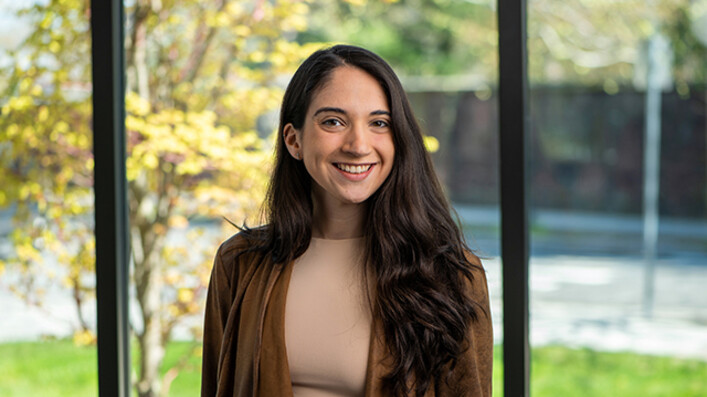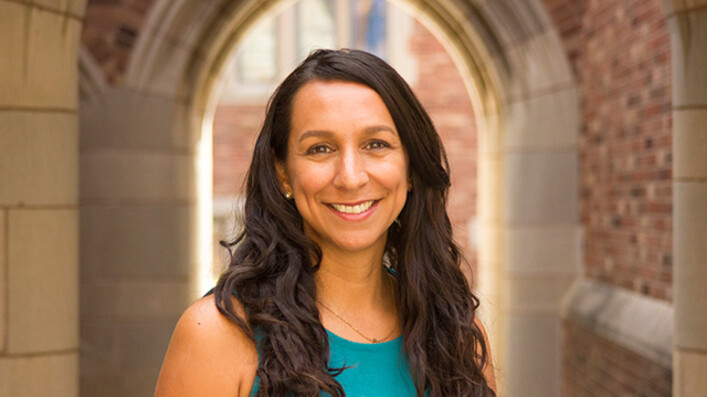Spotlight on the Rule of Law Clinic (ROLC)
I just got involved in the Rule of Law clinic in the aftermath of President Trump's election in the fall of 2016. I'd had Harold Koh as a professor for my 1L civil procedure class. And I was really inspired by the work he and his students had done during the Haitian refugee crisis and the lawsuit that they had against the president at the time. I'd also worked with Hope Metcalf through the Lowenstein Clinic. And when I learned that they were teaming up with Mike Wishnie to establish the Rule of Law clinic, I was really eager to get involved.
We founded the Rule of Law Clinic because we wanted to have a forum for students and faculty to work on some of the issues that are most pressing in the United States presently. Examples of those issues would be things like the travel ban, as well as the transgender ban that would bar transgender people from active service in the military-- as well as the return to detentions at Guantanamo.
On the day after the most recent election, on 11/9, we thought, you know, there might be some threats to the rule of law ahead. We should be prepared. For many of the students, the goal was to have a vehicle where they could use their legal knowledge to back up the kinds of principles they had been learning about.
We have students of both political parties in the clinic. And our clients have been former government officials from both parties. And we explicitly say bipartisan.
The Yale model is to have students do the actual work of lawyering at an ambitious level for up to five semesters. 80% of our students do these clinics. 50% of them do more than one. So just imagine how practice ready those students are when they graduate. They are ready to take on the world.
Working at the Rule of Law Clinic is the closest they can get to the actual practice of law as a student. I mean, we're literally working on cases supervised by attorneys. We're working on the ground, gathering facts, writing complaints. I mean, we're pretty much carrying out every step of the legal process.
I had a team of students, at the request of a local mosque, attend a know your rights session. Two students from the clinic put together a curriculum to help Muslims in the local surrounding communities understand what were their basic rights.
It's incredibly important to defend the rule of law. But it's also incredibly important that we think beyond the rule of law and how are we going to empower our local communities to ensure that that vision is what our government and our elected representatives are working towards each and every single day.
I traveled with my project team to Djibouti, where many of the immigration applications for families of Yemeni Americans are currently stuck after the US Embassy closed in Yemen in 2015 due to the war.
My team of students, who were in Djibouti for about a week-- they were able to do interviews with more than 30 people who are individually affected by the travel ban. There are families who have really been torn apart by this policy.
I am fluent in Arabic. So in interviewing the families and helping them understand the upcoming oral arguments, the Supreme Court's decision in June, and trying to translate what that means for their individual choices, it was really amazing to bring aspects of my individual identity and sort of cultural proficiency and now legal knowledge.
The matter that I've primarily worked on in the clinic is our representation of the NAACP regarding the 2020 census. Today, the NAACP and the Rule of Law Clinic view the counting of black and brown bodies, the accurate counting of those bodies, as a core issue of the rule of law. In March 2018, the Clinic, on behalf of the NAACP and Prince George's County, filed a lawsuit against the federal government alleging that the preparations for the census are so deficient that they actually violate the government's constitutional obligation.
The greatest threat to our democracy is a bad census count. And groups are systematically undercounted.
I was born in Canada. My parents immigrated there from India. And then, when I was 10 years old, we moved to the United States. And I became a citizen in 2011. So that upbringing taught me how similar people are around the world and how arbitrary pain can be for people and injustice can be-- and the sense that I've been lucky to end up where I am here at the law school, working with such incredible colleagues.
Being involved with the law school clinics is a unique opportunity to put in class training to use. It's an amazing way to learn how to be a lawyer, not just to learn the law.
Most people think there is just a giant gap between doing academic work and doing real practice work. And this law school has relentlessly refused to accept that gap. And you see it every day.
What makes Yale Law School special is the quality of every single individual in the building, a focus on both high theory and practical hands on education, and then a remarkable culture of commitment to making the world a better place than it was.
Seeing students in action through the Rule of Law Clinic is the absolute paramount professional achievement I could imagine. We get to see them learning and growing, just such an extraordinary degree over the span of a few months. And then we get to see them teach the next generation of students coming in the very next year.
I say to them, you know, make me proud. Do your best work. And let's figure out a way to work together on something down the road. And you know, it's always very exciting to see a student come back. They start full of promise and then they end full of accomplishment. And it's a thrilling thing.
A closer look at how students and faculty from the Rule of Law Clinic have been working to advocate for our core democratic values both within the United States and abroad.


